The Omicron threat at Christmas in four charts
Chris Whitty warns of ‘really serious’ threat posed by new Covid variant

A free daily email with the biggest news stories of the day – and the best features from TheWeek.com
You are now subscribed
Your newsletter sign-up was successful
The Omicron variant of Covid-19 is spreading through the UK at “an absolutely phenomenal pace” in the countdown to Christmas, England’s chief medical officer said last night.
Chris Whitty told a news conference in Downing Street that the new strain posed a “really serious” threat. And while “there are several things that we don’t know” about the extent of this threat, he said, “all the things that we do know are bad”.
Sounding a more positive note, Whitty pointed to “the existence of effective vaccines and the ability to boost at speed at this stage”. But with little more than a week until Christmas, anyone who tests positive in the coming days will be stuck in isolation for the big day.
The Week
Escape your echo chamber. Get the facts behind the news, plus analysis from multiple perspectives.

Sign up for The Week's Free Newsletters
From our morning news briefing to a weekly Good News Newsletter, get the best of The Week delivered directly to your inbox.
From our morning news briefing to a weekly Good News Newsletter, get the best of The Week delivered directly to your inbox.
The Times calculated that “the speed at which Omicron is spreading means that millions will have to cancel celebrations”. And with more and more people also calling off plans for fear of catching the virus, critics are complaining about a “lockdown by stealth”.
Soaring case rates
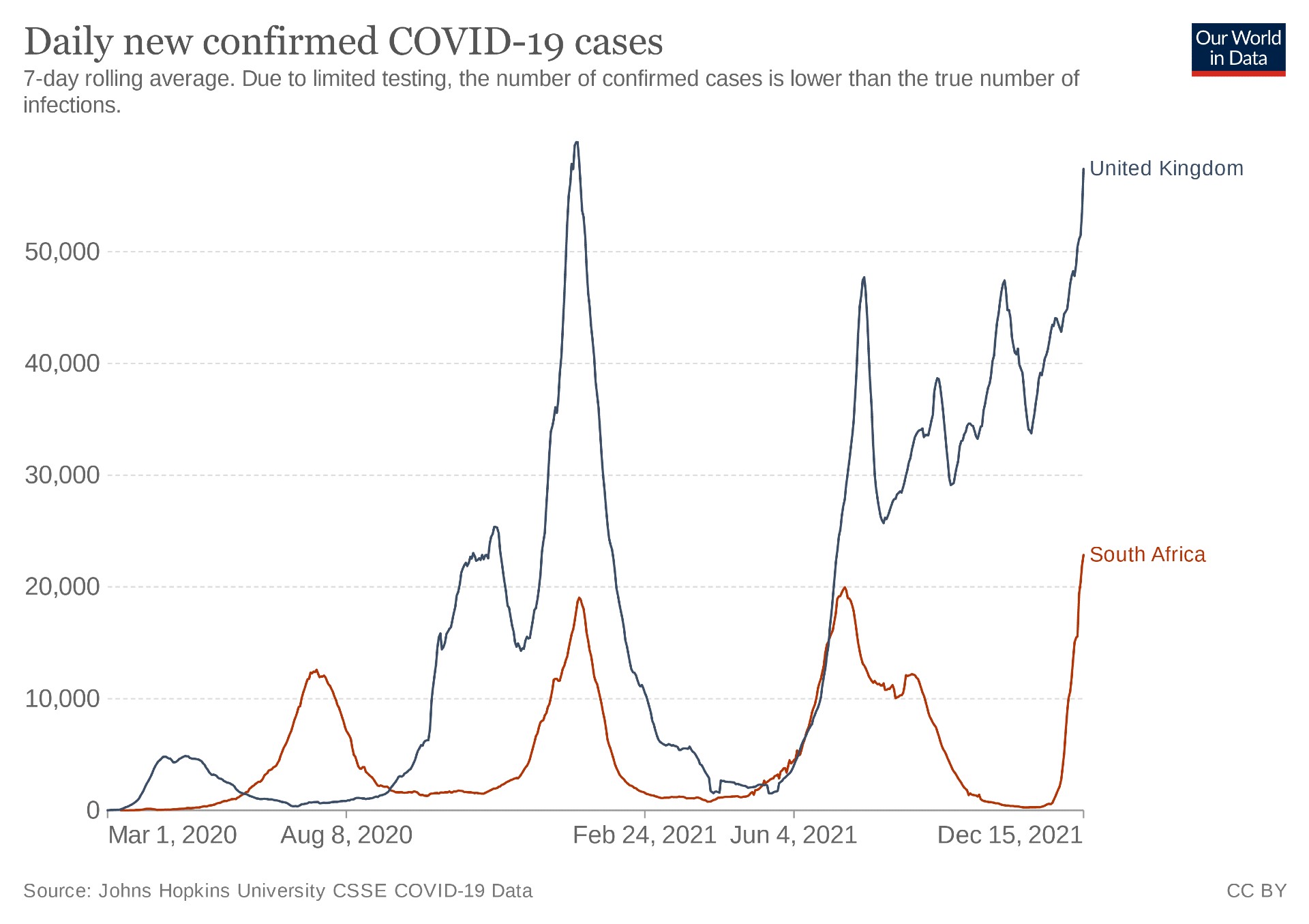
A total of 78,610 new Covid cases were recorded in the UK yesterday, the highest daily number since the start of the pandemic. Around a quarter of these cases are believed to be Omicron, which is circulating together with the Delta strain in what Whitty described as “two epidemics” at once. The steep rise echoes the situation in South Africa, which alerted the World Health Organization (WHO) about Omicron on 24 November after the first case was detected there.
“Expect new records to be set day after day as these numbers are only going to go up from here,” said the BBC’s Nick Triggle. If the current two-day doubling trend in the UK continues, “early in the new year the whole population will have been infected”.
The rate of infection will depend on several factors, however, including social distancing controls and immunity within the population.
A free daily email with the biggest news stories of the day – and the best features from TheWeek.com
The severity question
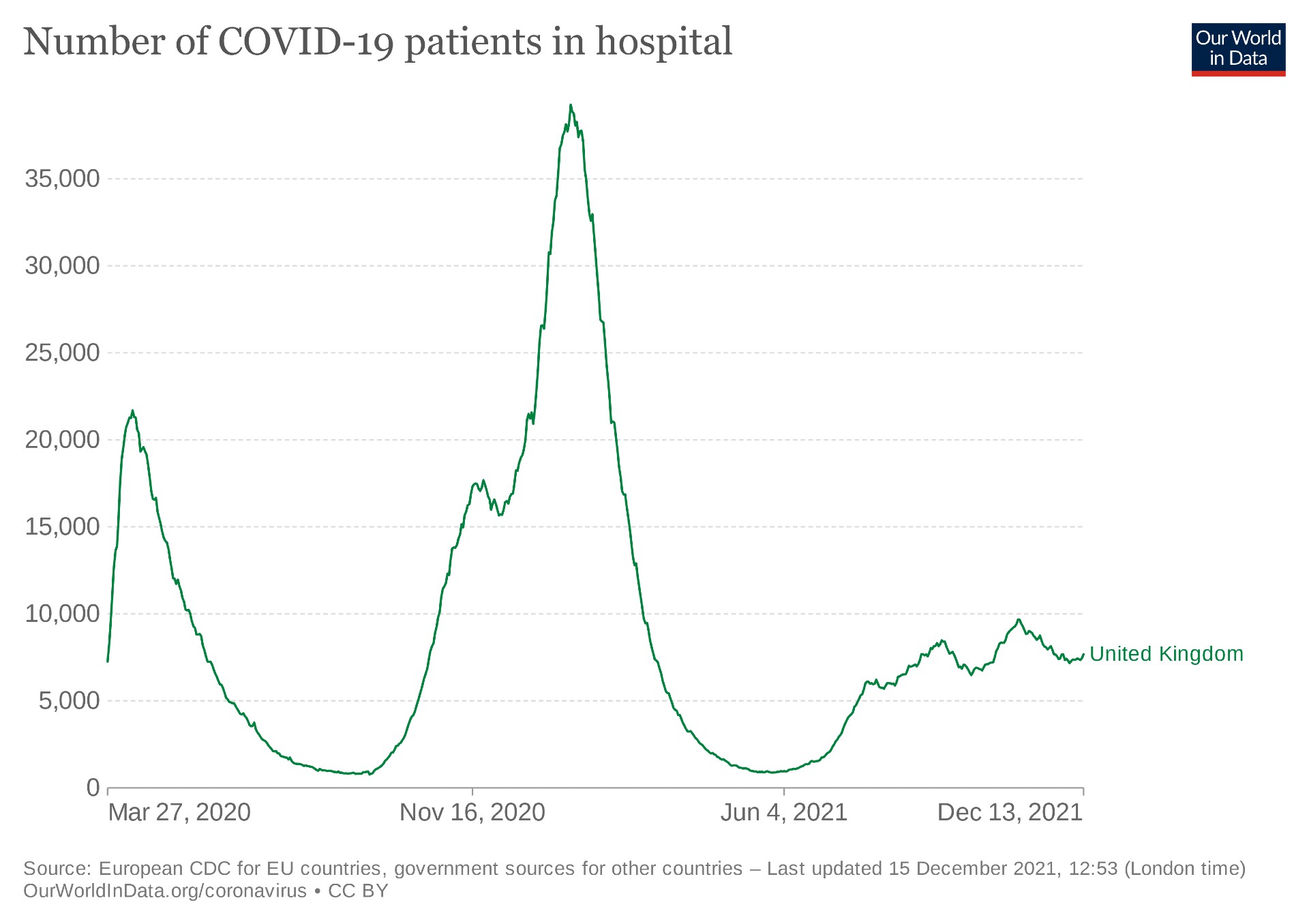
South Africa has reported relatively low levels of severe disease and hospitalisation from Omicron, despite rocketing infection rates. But WHO chief Dr Tedros Adhanom Ghebreyesus warned this week that it would be “wrong for people to consider Omicron as mild”.
According to The Guardian, “high levels of previous exposure to three previous waves of coronavirus infection in South Africa” might explain the milder outcomes, “rather than the variant itself being less virulent”.
Whitty said yesterday that even if the rate of hospitalisation from Omicron were cosiderably lower compared with other Covid strains, any advantage would be cancelled out if Omicron doubles every two days. “If the peak of this is twice as great, then halving of the size of the hospitalisation rate, you still end up in the same place,” he explained. And on top of that, he said, the expected “very sharp peak” in infections is likely to mean a high number of NHS staff are off work at the same time, putting further strain on the health service.
Charting excess deaths
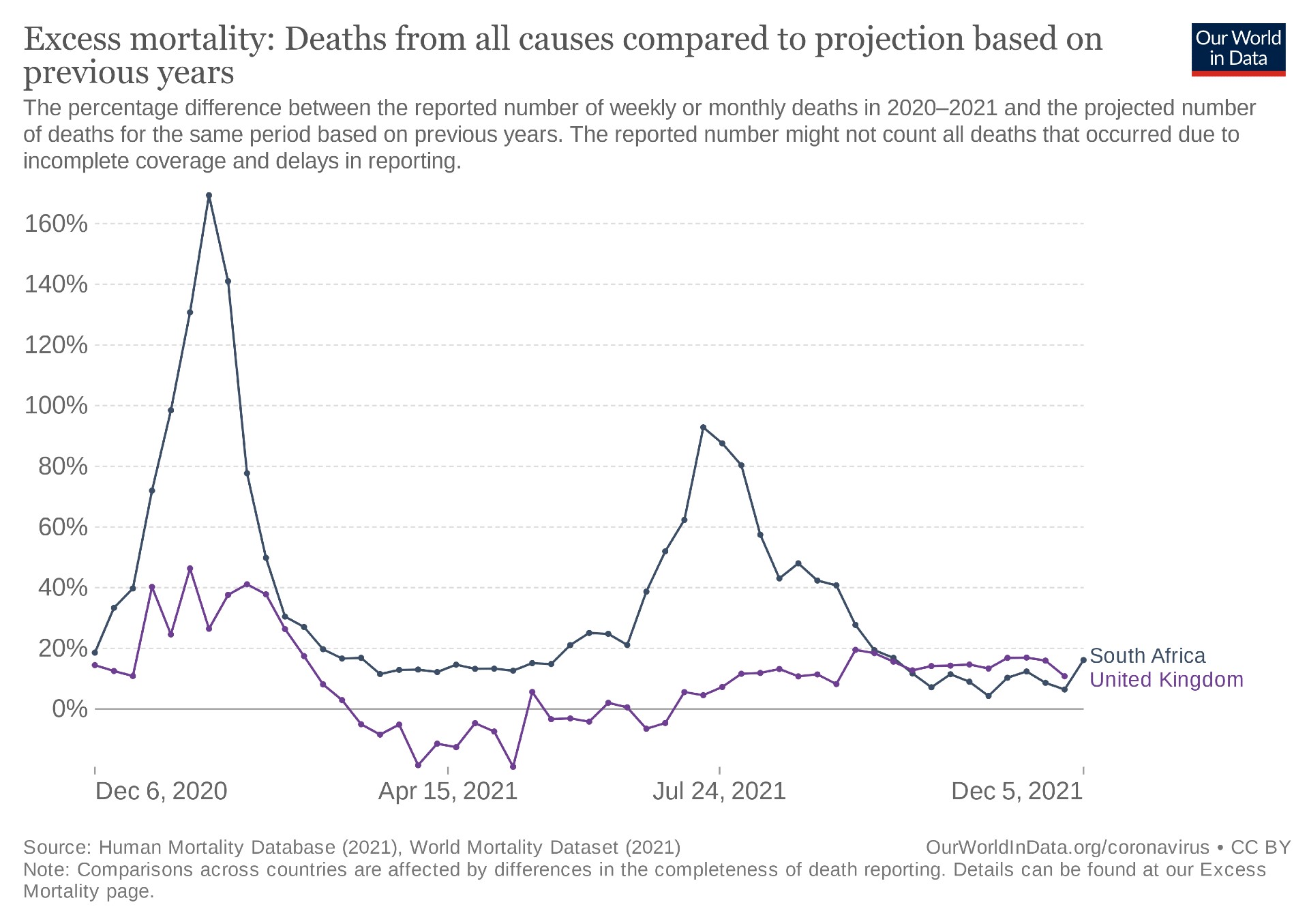
The world’s first confirmed Omicron death was announced by Boris Johnson on Monday. “Deaths from Omicron may have occurred in other countries but none has been publicly confirmed yet outside Britain,” said Reuters at the time.
The outcomes of cases in the Omicron epicentre, Gauteng province in South Africa, have been less severe. But excess deaths there have climbed to 10% of the country’s most recent peak, in July, and “are still rising”, tweeted Financial Times data reporter John Burn-Murdoch. And as with the rate of hospitalisations, a low death rate could still add up to a high total if case numbers soar.
Health Secretary Sajid Javid told MPs on Monday that it was “vital” to remember that hospitalisations and deaths “lag infections” by around two weeks. “So we can expect those numbers to dramatically increase in the days and weeks that lie ahead,” he said.
Booster campaign
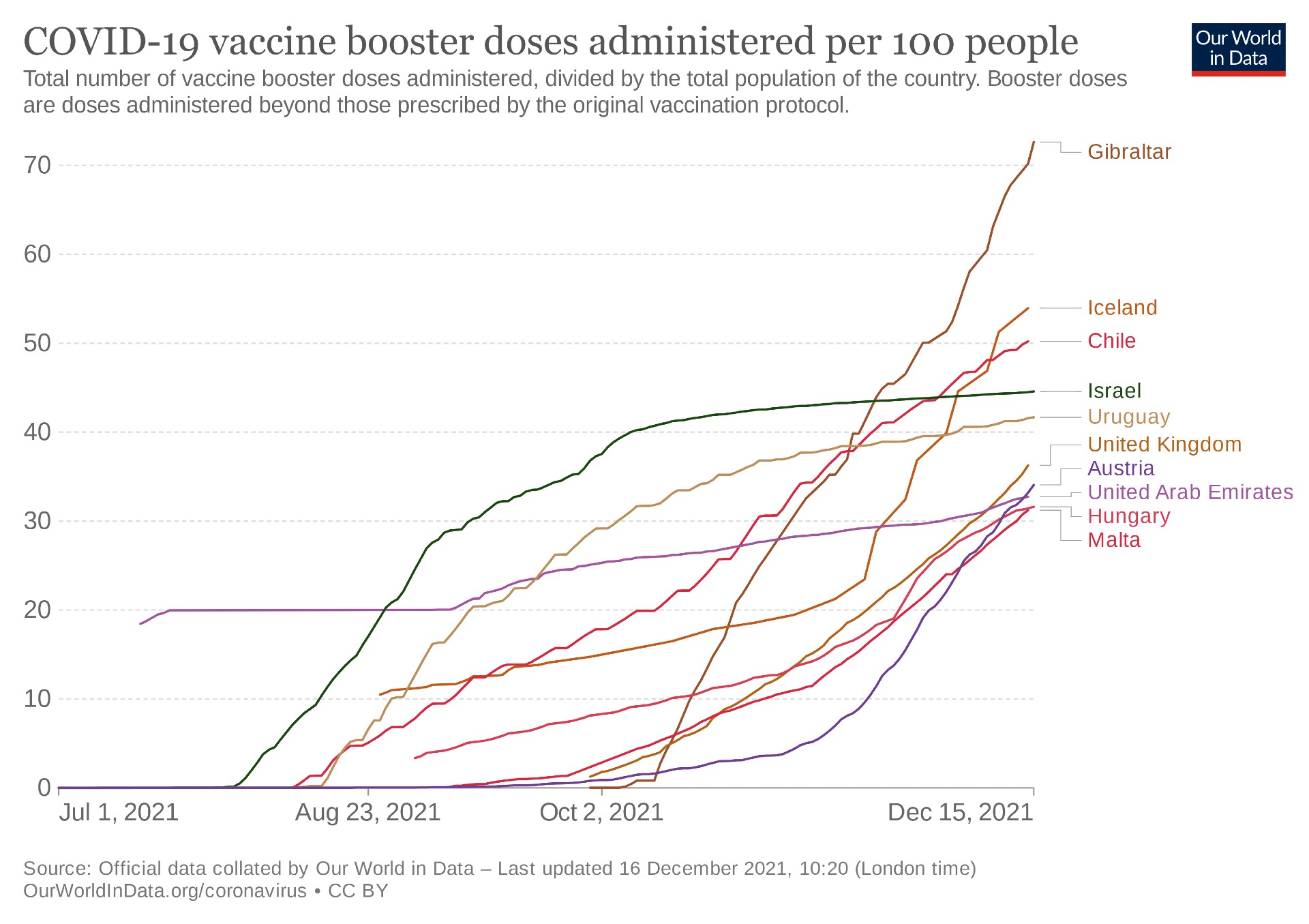
Omicron’s “constellation of mutations” means the new strain is “better than other variants at evading antibodies produced by previous infection with Covid or by vaccination against it”, said The Economist. Data from the UK shows that protection against symptomatic infection from Omicron “falls substantially” after two doses of either the AstraZeneca-Oxford or Pfizer-BioNTech vaccines, the paper reported. However, a booster jab restores protection levels to around 75%.
The UK has one of the world’s highest rates of Covid booster vaccines administered. Nearly 123m jabs have been given in total, including around 25m third doses, according to latest government data. More than 650,000 people were given a booster on Tuesday alone, and a total of 43% of people aged 12 and over have had three vaccine doses.
-
 6 of the world’s most accessible destinations
6 of the world’s most accessible destinationsThe Week Recommends Experience all of Berlin, Singapore and Sydney
-
 How the FCC’s ‘equal time’ rule works
How the FCC’s ‘equal time’ rule worksIn the Spotlight The law is at the heart of the Colbert-CBS conflict
-
 What is the endgame in the DHS shutdown?
What is the endgame in the DHS shutdown?Today’s Big Question Democrats want to rein in ICE’s immigration crackdown
-
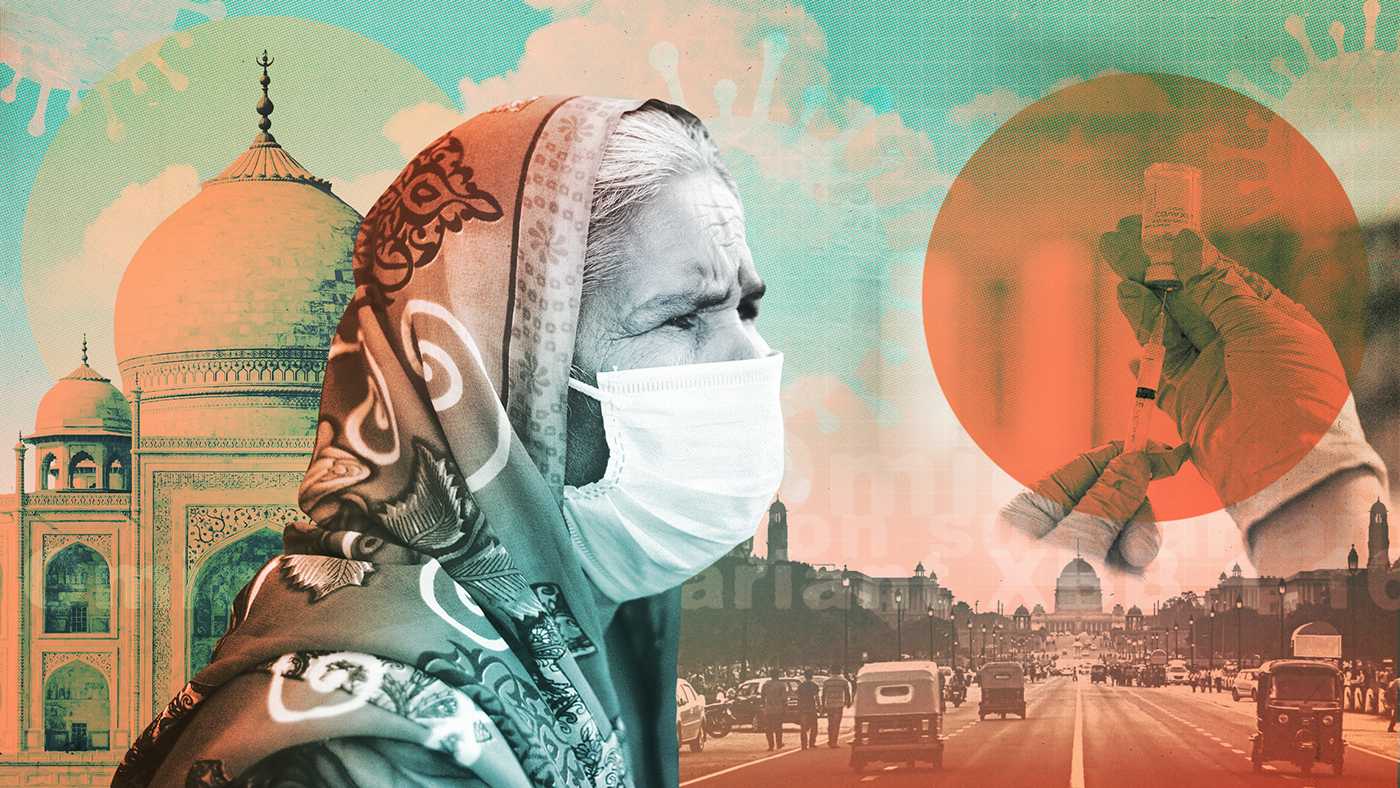 Arcturus: the new Covid variant surging in India
Arcturus: the new Covid variant surging in Indiafeature The highly infectious Omicron subvariant has also been reported in dozens of countries including the UK
-
 How serious a threat is new Omicron Covid variant XBB.1.5?
How serious a threat is new Omicron Covid variant XBB.1.5?feature The so-called Kraken strain can bind more tightly to ‘the doors the virus uses to enter our cells’
-
 BA.5: Is it time to step up the COVID fight again?
BA.5: Is it time to step up the COVID fight again?opinion The sharpest opinions on the debate from around the web
-
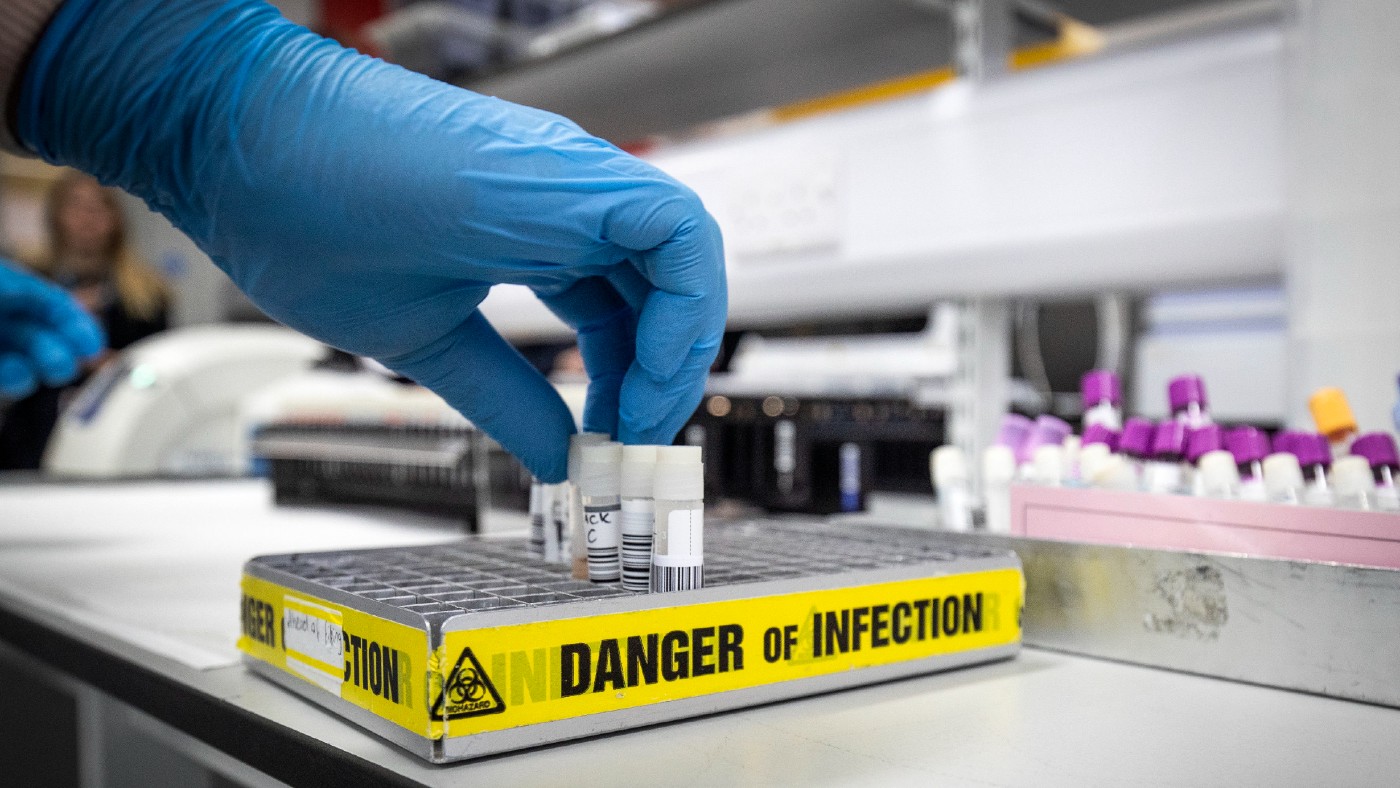 BA.5: how worried should we be about the new Omicron variant?
BA.5: how worried should we be about the new Omicron variant?Today's Big Question Mutation described as ‘worst version yet’ by one expert, but others have downplayed fears
-
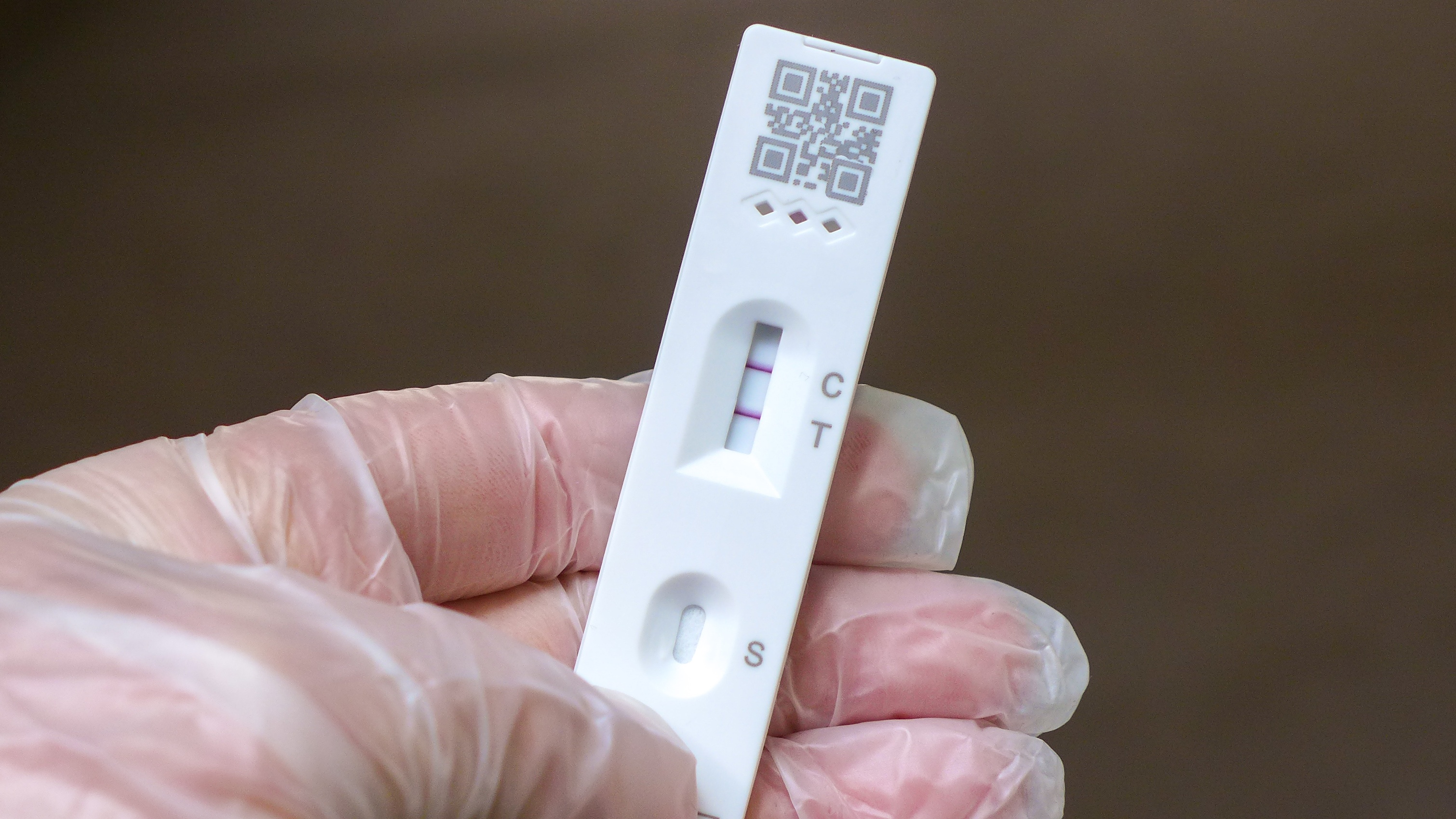 BA.4 and BA.5: what the two new Omicron variants mean for the Covid pandemic
BA.4 and BA.5: what the two new Omicron variants mean for the Covid pandemicfeature Health experts say we have entered the next wave of Covid-19 infections
-
 Why are there so many new Omicron sub-variants?
Why are there so many new Omicron sub-variants?feature Latest sub-variants of Covid-19 mutation are fuelling fresh waves of infections worldwide
-
 How quickly can you catch Covid again?
How quickly can you catch Covid again?Today's Big Question Scientists say a woman was infected with two different strains of the virus within three weeks
-
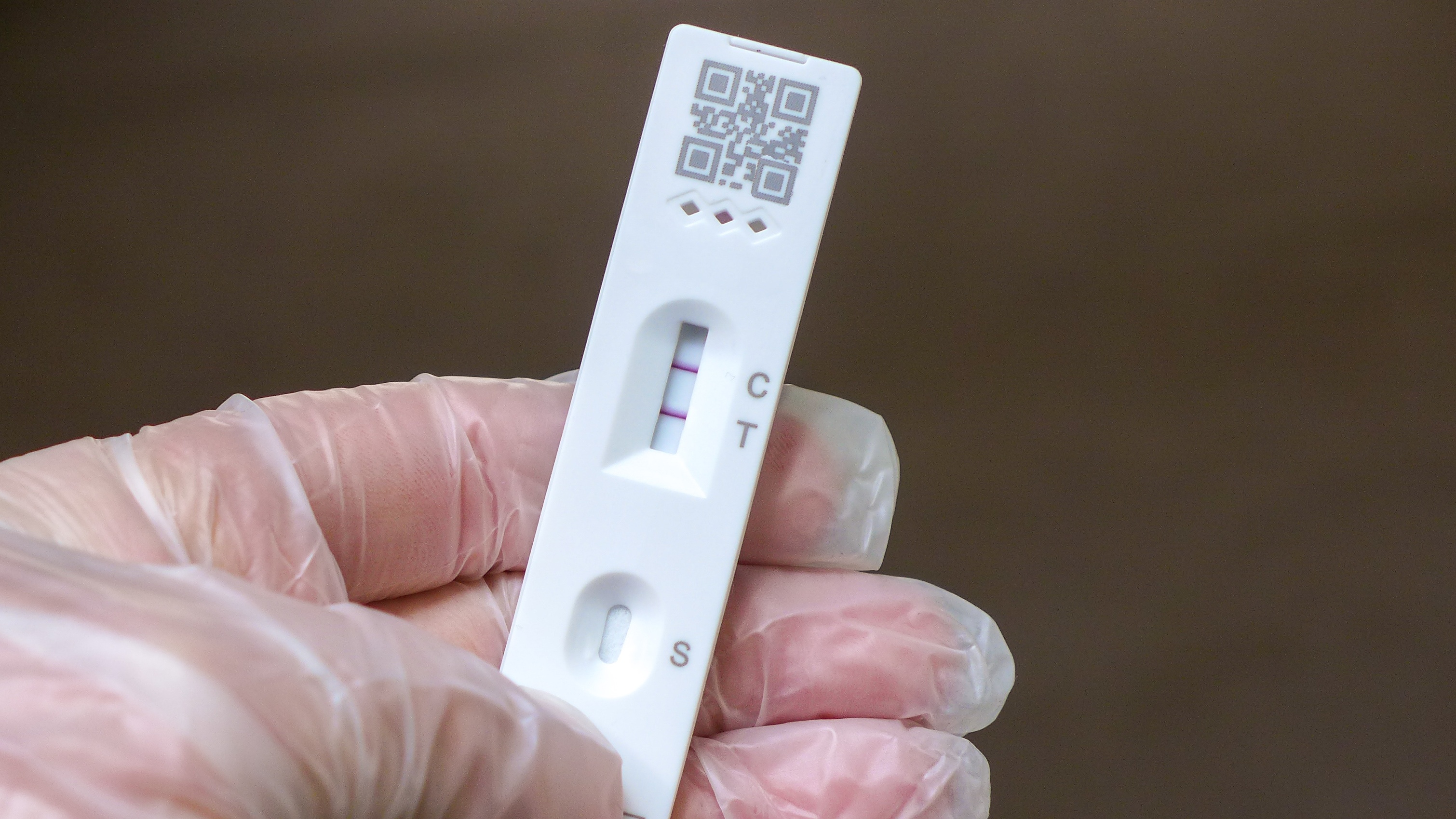 Has Covid become less dangerous than flu?
Has Covid become less dangerous than flu?Today's Big Question New figures suggest Covid-19 poses lower death risk but experts warn against complacency